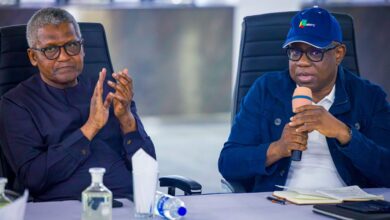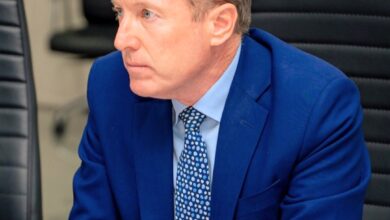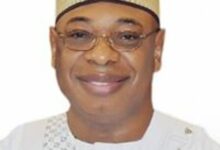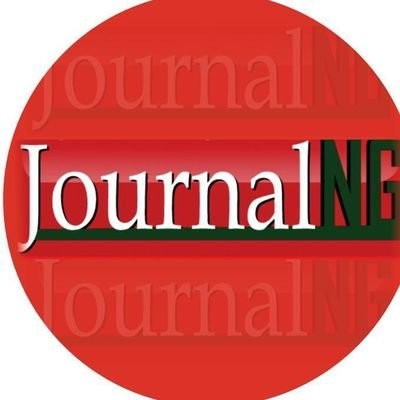
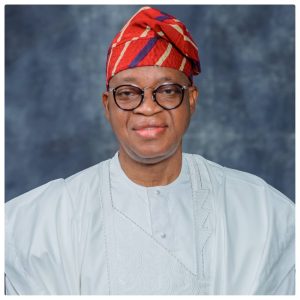
The Minister for Marine and Blue Economy, Mr Adegboyega Oyetola has disclosed that the Ministry is ready to collaborate with industry stakeholders to involve the required technologies and infrastructure to optimize the large socio-economic gains accumulated from the sector.
He made this known at the formal opening of the second edition of the African Maritime Art Exhibition (AMAE), themed “The Convergence: Maritime Meets ICT” through his Technical Aide, Prof. Busayo Fakinlede on Friday, in Lagos.
Mr Oyetola explained that for sustainable management development and effective use of maritime resources, there is the need for technology.
He said the Art Exhibition is a technique for creating awareness in the minds of the citizens and a sense of understanding of the significance of the sector.
“The Maritime Art Exhibition is another way to reach out to Nigerians about Blue Economy.It can be an effective way to build the consciousness of the maritime in the minds of Nigerians”.
“For people to have that clarity and understanding about maritime and how to channel the necessary sectors, we have to explore all approaches.It can be via social media, traditional media or art”.
“With the creation of the
new Ministry of Marine and Blue Economy, there is a greater need for this awareness to enable the citizens to grasp the importance of the sector”.
While delivering his goodwill message, the Managing Director, Nigerian Ports Authority (NPA), Mohammed Bello-Koko who was represented by the Port Manager, Lagos Port Complex (LPC), Apapa, opined that the lack of port community system in Nigeria has made Nigerian ports to be one of the most inefficient ports in Africa.
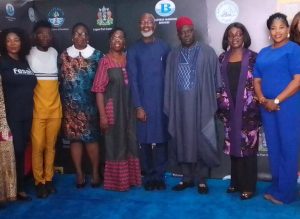
” We have had reasons to carry out peer review with ports of smaller countries like Ghana, Benin Republic, Togo.For Benin and Togo, we found out that there is a drastic drop it delivery time of cargo from 21 days to 3 days.The main driver to this efficiency coefficient is because they have functional port community system”.
He further urged stakeholders to improve their Information Communication Technology to a level that they can contribute to efficient cargo clearance.
“Every stakeholder that has business to do with the ports needs to develop ICT status or standard that can integrate to the central connectivity point”.
Bello- Koko requested that the Power Holding Company of Nigeria, (PHCN) ensure that there is consistent power supply to the ports.
” When the port system has a consistent power supply, we are able to comply with International Maritime Organization instrument that frowns at vessels steaming to ports”.
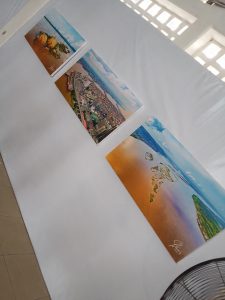
In the same vein, the Chief Executive Officer, Nigeria Shippers Council, (NSC) , Akutah Pius Ukeyima MON , who was well represented by the Director for Consumer Affairs, NSC, Chief Cajetan Agu stated that the inclusion of technology to our maritime heritage holds the key to sustainable growth for our nation and the African Continent as a whole.
He also assured that the council is working towards boosting the economic growth of the nation.
” The NSC objective is aimed at improving effective and efficient port sector that will facilitate international trade and optimally contribute to the economic development and growth of the economy”.








